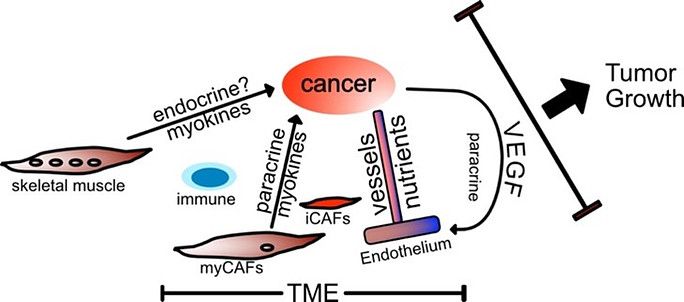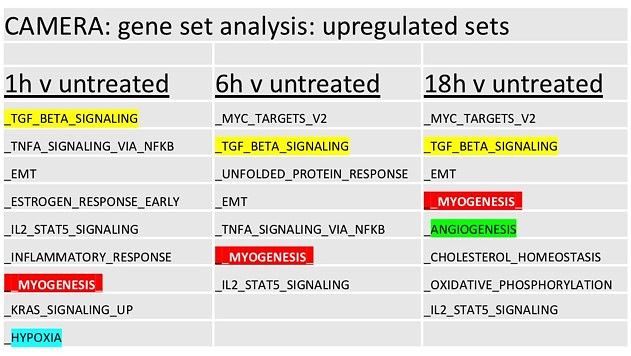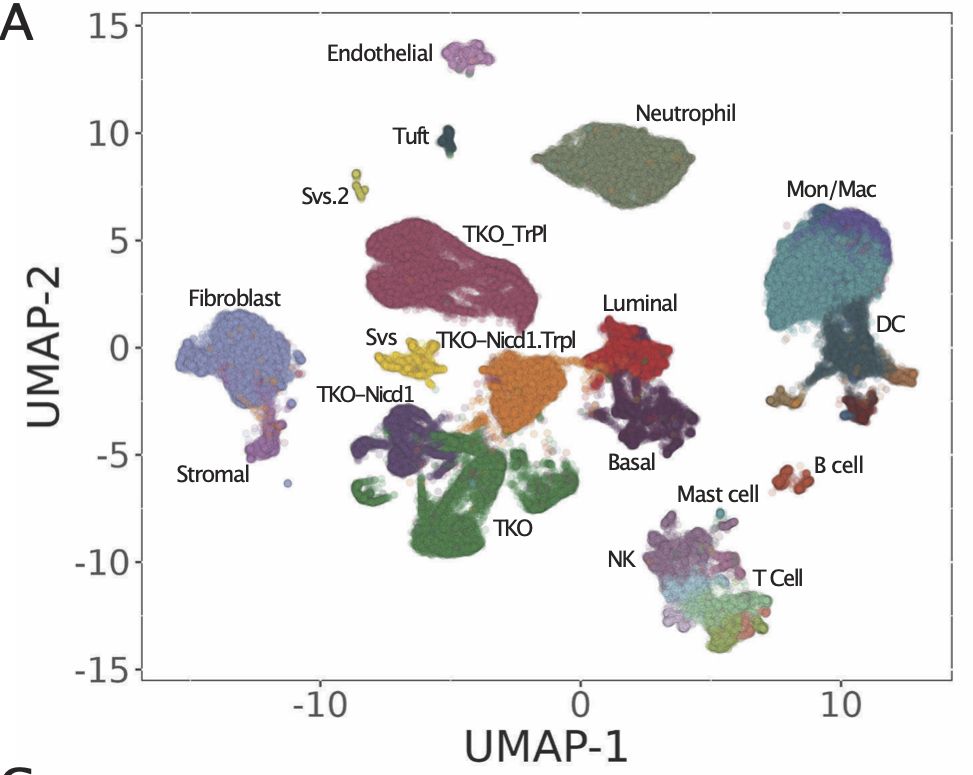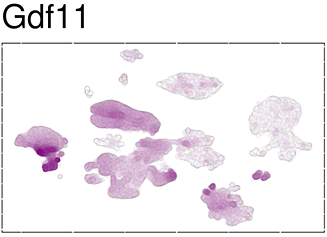Myokines ectopically expressed in myCAFs induce pro-angiogenic signals that stimulate prostate tumor growth
We have made two key discoveries. First, we discovered that prostate tumors in both mice and men produce TGF-myokines. In contrast, in mice without cancer, the TGF-myokines are produced only in muscles.
Second, these TGF-myokines stimulate tumor growth by inducing new blood vessels that feed the tumor oxygen and nutrients.
Specifically, we found TGF-myokines bind a cognate receptor complex on the surface of tumor epithelial cells, stimulating smad2/3 signaling and inducing the transcription of genes encoding several angiogenic ligands (VEGF-A, PGF, FGF2).
These pro-angiogenic ligands are then secreted into the tumor microenvironment to stimulate tumor angiogenesis and promote tumor growth. If we block the TGF-myokine signaling, both early and late-stage castration-resistant prostate tumors regress.
Our preliminary studies indicate that myCAFs – stromal fibroblast cells that resemble muscle, and that are perturbed during cancer development– are the source of TGF-myokines.
See the science
Email us! This work is still in progress and not yet published.
Connect with the Nastiuk Lab
Department of Cancer Genetics & Genomics
Roswell Park Comprehensive Cancer Center
Elm and Carlton Streets
Buffalo, NY 14263



